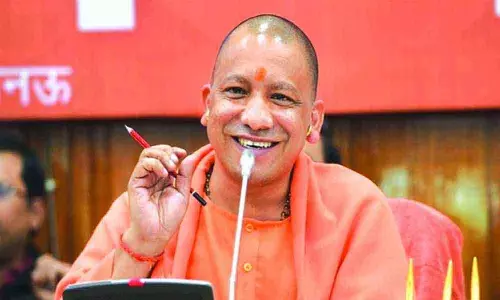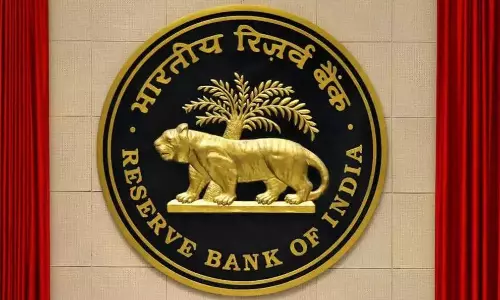
Sirisena ousts Rajapaksa in Sri Lanka, Ranil is PM
text_fieldsColombo/New Delhi: Barely two months after he defected to the opposition and became its presidential candidate, Maithripala Sirisena Friday took oath as Sri Lanka's new president, defeating Mahinda Rajapaksa who had called the election two years early hoping an easy third term.
Opposition leader Ranil Wickremesinghe, who as prime minister signed a historic peace accord with the now vanquished Tamil Tigers in 2002, was sworn in as the prime minister at the Independence Square in Colombo.
The outcome was a stunning setback for Rajapaksa, who first became the president in 2005 and then crushed the Tamil Tigers in 2009. Sirisena, Rajapaksa's health minister until he switched sides in November, won over 51 percent of the votes cast in Thursday's presidential battle.
The swearing-in ceremony in the evening was attended by High Commissioner Y.K. Singh for India, which had followed the election keenly.
Even before the Election Commission announced the result, Prime Minister Narendra Modi became the first world leader to congratulate Sirisena, 63, on his "historic" victory and urged him to visit India.
Modi also called for "genuine reconciliation" under Sirisena's leadership in Sri Lanka, where the killings of thousands of Tamils in the last stages of the war that destroyed the Tamil Tigers in 2009 is a major issue.
In recent times, Muslims and Christians also turned against Rajapaksa after coming under attack from Sinhalese-Buddhist hardliners while rights groups charged him with war crimes.
In a letter to Sirisena, Modi said: "Your historic victory is a tribute to your vision for Sri Lanka, your capacity to connect with people's yearning for change.
"I wish you all the success in building a peaceful and prosperous Sri Lanka, on foundations of genuine and effective reconciliation." Modi also spoke to Sirisena on telephone.
Modi said earlier: "As a close friend and neighbour, I reaffirm India's continued solidarity and support for Sri Lanka's peace, development and prosperity."
Earlier, Rajapaksa, who was re-elected in 2010, conceded defeat and vacated his official residence. He pledged to cooperate with the Sirisena government.
Sirisena, before leaving for Colombo from his home in northwestern Polonnaruwa province, pledged not to take "revenge" against political foes and vowed to promote Buddhism, the country's dominant religion.
Sirisena, who in his election campaign accused Rajapaksa of corruption, nepotism and promoting family rule, said he would "create a just and equal society" and provide good governance.
Celebrations erupted in Colombo as supporters of Sirisena, whose dramatic defection from the cabinet to the opposition in November upset Rajapaksa's hopes of winning a third term, burst firecrackers.
After conceding defeat, Rajapaksa tweeted: "Thank you to all the thousands of Sri Lankans who supported me."
Rajapaksa also told MPs from his Sri Lanka Freedom Party (SLFP) that he would continue to head the party.
US Secretary of State John Kerry said he hoped the new regime will build "a Sri Lanka that is peaceful, inclusive, democratic and prosperous".
As the representative of more than 40 opposition groups, Sirisena drew support not only from the Sinhalese, the country's majority community, but also from the Tamil and Muslim minorities.
In Tamil Nadu, the MDMK and the PMK said Rajapaksa must be tried for war crimes.
Tamil Nadu's political parties, along with rights groups, have accused Rajapaksa of killing thousands of Tamils in the end stages of the war that destroyed the Tamil Tigers in May 2009.























